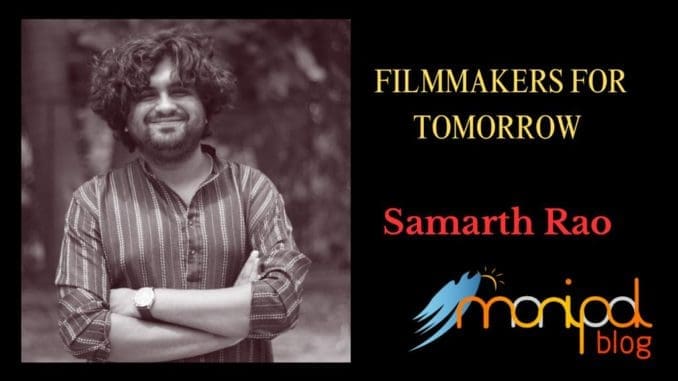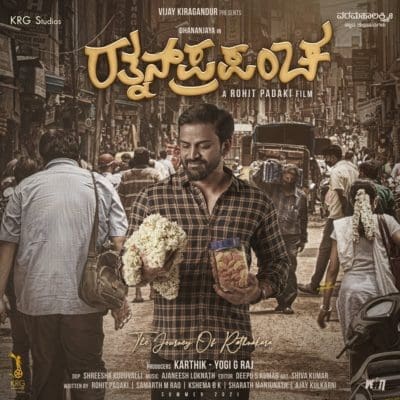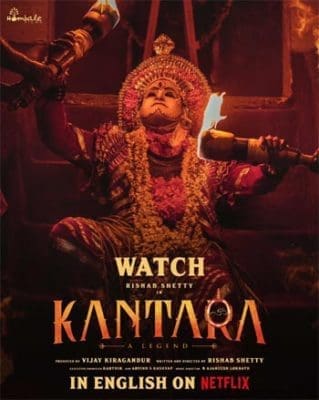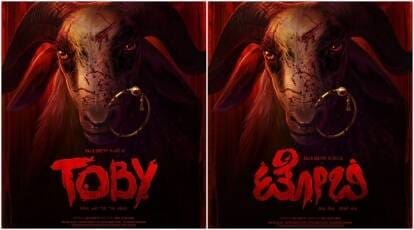
Samarth Rao is one of the leading subtitlists in Kannada cinema. He is a post graduate from Manipal Institute of Communication and has subtitled over sixty films and documentaries. He was a co-writer and associate director for the Amazon Original ‘Rathnan Prapancha’. He also provided the subtitles for the blockbuster ‘Kantara’(2022) and the critically acclaimed ‘Shivamma’, ‘Dollu’ and ‘Beast of Bangalore’. His newest projects are ‘Swati Mutthina Male Haniye’ and ‘Toby’, both of which are directed by Raj B.Shetty.
How has the art of subtitling a film undergone a change since the pandemic?
I think it started with OTT becoming a thing. When we started accessing international cinema as just movie enthusiasts and not necessarily a journalist or a filmmaker. A lot of people started to enjoy a wider range of films from all over the world such as French, Arabic or any language due to the availability of subtitles. Dubbing has existed for quite some time in India but the overall aesthetics of a dubbed film used to be something people could not agree with. Dubbing is still something the industries are trying to get right. But very few can come close to actually achieving those levels of perfection. So subtitles has been a big thing for the past few decades, ever since the Internet has become a part of our life. Be it a torrent or a streaming service, the need to provide quality subtitling has become a requisite. I think you can divide it into two phases- one was when OTT became very rampant in India. Over the top streaming gave a big boost to subtitling as a profession as there were so many movies that needed to be subtitled. Language ceased to become a barrier. All across India, South Indian films gained an audience due to the availability of subtitles. People were willing to experiment. And the pandemic gave them even more time to watch the plethora of content that was available. I think another phase where subtitling grew, was when filmmakers saw OTT as a great tool to release their films. I mean, subtitling was rampant in Hollywood and all these film festivals. It was a must for the films premiering there. Here in India, it was more of a DVD feature to have subtitles. But in 2018, the CBFC released a law that stated that if movies were to be censored, the subtitles also had to be. Therefore many filmmakers and producers do subtitling a little more earlier now. Before it used to be the last thing on their minds. Therefore, the pandemic did change the demand for subtitling content and the benefit is that even old preserved films in OTT are getting picked up and subtitled, that contributes to their popularity and preservation at the same time.

What are some insights or learnings that you picked up from the team of Rathnan Prapancha?
I actually worked in Rathnan Prapancha as a co-writer. So Rohit Padaki(the director) had a rough first draft ready. It was a script of one liners. A team of writers including me and my friends Kshema, Ajay and Sharath co-wrote the film. It was very different when you write a film and get involved in that process. I felt that the detailing of the script was very important. Be it in conveying the mood or theme of the film,the details played a huge role. Each detail would ultimately find its way into the film and it is important to be careful about such things. As a writer, I am still learning and when we wrote Rathnan Prapancha, I understood how collaborative efforts give you different perspectives. I also realised that writing can be a great collaborative effort as well if you are willing to work together. I got an understanding of the budget too. When we have more budget, we can indulge in the details and we have more time to do that as well. I could observe how much contribution the actors gave us when I worked as the associate director as well. They would end up doing the role exactly like you wanted them to without major instructions. That was due to the detailing.
What was different in the scripting process of Rathnan Prapancha?
We did not do anything different per say. We used reliable methods of writing to create the world of Rathnan Prapancha. Most filmmakers would like to overemphasise on what they did differently. But here we just stuck to the reliable methods that helped us find the characters and give them a purpose. We needed characters who knew what they were doing. We were a team of writers and we made it a point to provide multiple perspectives to a particular character or situation. Ratnakara is the protagonist of the story but at the same time the story is about how the world reacts to him as an individual. What all he learns forms the core of the story. So there was a special attention given to that while constructing the story.

What advice would you give to upcoming script writers?
Well first of all, I am no one to give advice to the upcoming scriptwriters(laughs). I am figuring out the process myself and there is still a lot for me to learn. But what I feel is all the writers, irrespective of whether they are writing for cinema or not, should read a lot. I mean I incorporated a lot of ideas based on the simple books I read during my childhood into the script of Rathnan Prapancha. A lot of people do not read nowadays. I don’t read that regularly but I am working towards making it a habit. Another boring aspect is to read screenplays but that helps you a lot in structuring your screenplay. So reading anything contributes to the content you write as a writer. It is very sly advice that I am giving. Nowadays people do not read at all. Therefore reading does give you so much. You also need to travel and discover experiences. You can never buy experiences. And I would like to quote Akira Kurosawa here. He said that writing is easily the most dull and consuming art of cinema. Therefore writers need to put a constant effort to overcome that. You will have to keep on writing and reading and experiencing life as it is. The world is pretty cinematic once you start observing.
How do you approach writer’s block?
I do struggle with writer’s block a lot. I feel that you just keep on writing. Whenever you don’t feel like writing, you sit and read to find that inspiration. The fact is that even if it is silly or complete nonsense that you’ve written, you can still work on it. Something written on paper is better than a blank sheet. Training your mind to at least write a few lines everyday is extremely important. You just continue writing, irrespective of whether you feel it is working or not.

What are the new projects you are working on?
I am a full time subtitlist now. Therefore I am subtitling a lot of films nowadays. The most recent film I wrote subtitles for was Raj B Shetty’s ‘Swati Mutthina Male Haniye’ and I am also writing for his next film ‘Toby’ which is directed by Basil Alchakkal. I am also working on my independent scripts so that I can write and direct some short films with a small budget. Since I am very much occupied with subtitling, it would take some time before I can write my own feature film script. But still I am working towards it.




Excellent information about your journey with film dignitaries…..motivational
Regards
Anand-Bangaluru